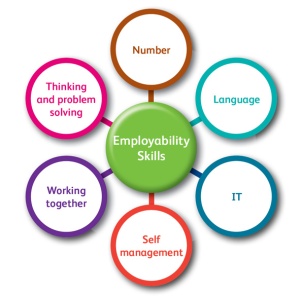So, you have just been promoted as the new head of your new/existing department, or you are just starting out as an entrepreneur and you’ve employed a few people to work with you, congratulations! The good news is, you are now a boss; great news actually. However, being a great boss is not just about wearing power suits and ties all week long, neither is it about barking instructions at your subordinates like some emperor. What you want to be is a leader, an effective one at that. You want to have certain characters or qualities that make your workers respect you, that make clients and prospective customers want to associate with you, and ensure you consistently inspire employees or subordinates to perform well and remain loyal.
Leaders are not necessarily born, they are made on the job daily, and this means that even if you are not that great of a boss now, you can learn how to be an effective leader. One critical aspect of being a good boss is recognizing that much of what goes into being an effective leader is, in fact, learned behaviour. Of course, there always have been and will be bosses who seem to have a flawless touch in leading and motivating. But for every natural, there are just as many top flight bosses who became that way by attending management classes and seminars, and reading books on effective leadership. People can definitely develop good leadership capabilities, because to a certain degree, we all have innate traits that make us good bosses. All you really have to do is work to develop those traits to their utmost.
The first thing you should know, is that being a manager does not necessarily make you a good leader, and a leader is who you want be in today’s dynamic work environment. One good distinction between a manager and leader is managers want credit, while leaders credit their teams. Effective leaders don’t strive to be the first to take credit for positive outcomes; rather they credit their team for the ‘big wins’. And this pays off in the long run by establishing a more positive company culture where employees are driven toward more successes as a team.
So, what are some characters or qualities you need to have or develop to turn you from just a boss to an effective leader?
Acknowledge Results
Studies show that acknowledging the great things your employees do can be more motivational than bonuses. When results are coming in, and things are going well in your organization, let your team know– early and often. Publicly recognize productive employees for their contributions. Make a big deal about it. You don’t have to buy a big gift, but you need to encourage outstanding, sustained performance by showing your employees how much their efforts are appreciated every day.
Build Rapport
If you are younger boss, there is a possibility that older people and especially the ones you met at your workplace won’t like you very much, and they will prove to be difficult most times. But your job is to make sure you address immediate needs and requirements to help you be more successful. You need to realize that effective managers are good at engaging with difficult personalities and situations.
Give Up Control
These days, we see many bosses with the title, MD/CEO, and majority of them especially people who started their companies by themselves are gravitating toward the old command and control model where the boss’ fingerprints can be found on everything. However, the problem here is, the business will never grow bigger than you as one person can manage effectively. If everything has to flow through you, an unnecessary bottleneck is sure to be created, and people would have to wait for you to sign off before they can move ahead.
You won’t get the best ideas out of your people. Another negative with not giving up control is once your employees/subordinates understand the company is set up so that everything revolves around you, they will not take the time to develop their best ideas and you won’t ever get the best ideas out of them even if they have some.
However, once you give up control, and let people make their own decisions, an intriguing thing happens; invariably, the number of mistakes will go down because once they know they will be fully responsible for their decisions, they tend to be not only more creative, but careful. The upside to this is; they will do a better job and you will have more time to think.
Make Accountability a Process
Your employees and subordinates must trust and believe that there is a fair and accurate process for keeping track of their actions and tying their behavior to real consequences. You must ensure that your employees know that they will have to explain their actions to you up close and often. Be the boss who is known for holding people accountable, raise your standards, focus on concrete actions within the direct control of the employees and separate your role as the boss from your personal relationships. You must take charge from day one and you must be seen to be taking charge.
One Person at a Time
You need to realize that no two employees are the same, so you have got to keep fine-tuning your approach with each individual by asking yourself and answering these questions; Why do I need to manage this person? How should I talk with this person in a work environment? Where should I talk with this person? You have to learn to talk like a performance coach. Develop a way of talking that is both authoritative and sympathetic; both demanding and supportive; both disciplined and patient. Don’t wait for problems to start coaching. Performance coaches tune in to the individual they are coaching, they focus on specific instances of individual performance.
These qualities and characteristics are just a few out of so many. So read extensively, pick a mentor who has leadership qualities and make deliberate efforts at getting better daily. Do that, and you are on your way to becoming an effective boss and a leader.
This article was first posted on www.connectnigeria.com
Photo credit —- Google


